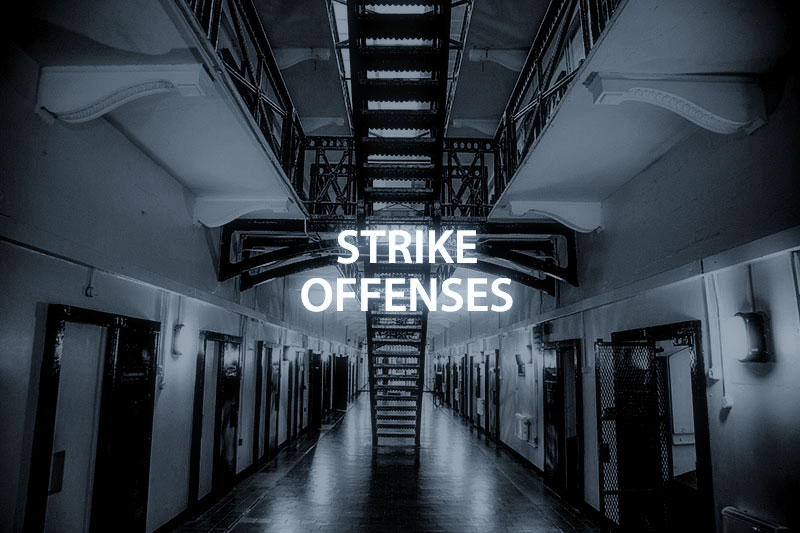The shadow of ambiguity often hovers over legal definitions and categorizations. In California, this is particularly relevant regarding the Three Strikes law, where the stakes are high, and the classification of a “strike” offense can significantly impact a person’s life. The law was created with the intent to curb violent crime by imposing harsher sentences on repeat offenders. However, determining what qualifies as a strike can be complex, leaving room for interpretation and debate.
The Complexities of Classifying Strike Offenses
A strike offense, under California law, should be a conviction of a serious or violent felony as defined by the state’s penal code. The language of the law appears straightforward, listing specific crimes that constitute serious or violent felonies, and thus, potential strikes. However, the reality is that legal terms are not always black and white. Despite the enumerated crimes, gray areas exist:
- Degree of Violence: Sometimes, the level of violence or seriousness of an offense may be subject to legal interpretation and argumentation. Crimes at the lower end of this spectrum can blur the line between a standard felony and one that warrants a strike on one’s record.
- Plea Bargains and Conviction History: In instances where plea bargaining comes into play, a borderline offense may be negotiated down to a non-strike offense or might remain a strike depending on various factors, including a defendant’s prior convictions.
- Charges of Attempt: When an individual is charged with attempting to commit a felony, rather than completing the crime, it can lead to questions about whether the offense qualifies as a strike.
“Less Severe” Strike Offenses and Their Consequences
The Three Strikes law once cast a wide net, catching both violent felonies and less severe felonies under its purview for those with prior strikes — that is until California voters introduced reforms with Proposition 36. Yet, some offenses, while not as overtly severe as murder or rape, may still trigger strike consequences:
- Drug Offenses: Prior to Proposition 36, certain drug crimes, including those involving sale or possession for sale, could have counted as strikes. Post-reform, the scope has narrowed, but depending on circumstances, serious drug offenses can still be considered strikes.
- Burglary: Residential burglary is classified as a strike, while other forms of burglary may not be. The distinction lies in the potential for violent confrontation — a reality more likely during a residential break-in.
- Assault: An assault charge can be deemed a strike if it involves the use of a deadly weapon or the intent to cause great bodily harm. The determination depends on case-specific facts and the degree of harm or threat posed.
Amendments and Interpretations
Legal interpretations and amendments continually redefine the applicability of the Three Strikes law. Judicial discretion and prosecutorial decision-making further add to the complexities. For those facing charges, the nuances of their case can significantly influence whether or not an offense becomes a strike.
The Role of Legal Counsel
Due to the high stakes and subtleties involved, competent legal representation is crucial. Defendants may not fully grasp the implications of their charges, and an experienced lawyer is best equipped to navigate these waters. The potential for long-lasting consequences like enhanced sentencing and limited eligibility for parole necessitates a thorough understanding and strategic legal response.
Contact Criminal Defense Attorney Warren for Help!
The determination of what constitutes a strike offense in California is a complex matter, a balance between the literal interpretation of the law and the unique particulars of each case. Offenses that appear less severe on the surface can still bear the weight of the Three Strikes law’s severe penalties. While Proposition 36 brought more clarity and fairness to this equation, the line between a strike and a non-strike offense remains nuanced, demanding careful consideration and adept legal navigation.
Personal Injury & Criminal Defense Services Available Throughout
Greater Sacramento, Yolo, Placer, and Solano Counties
Antelope, Arden-Arcade, Auburn, Benicia, Carmichael, Citrus Heights, Davis, Dixon, Elk Grove, Fairfield, Fair Oaks, Folsom, Galt, Gold River, Granite Bay, Iselton, Lincoln, Loomis, North Highlands, Orangevale, Rancho Cordova, Rio Linda, Rio Vista, Roseville, Rocklin, Sacramento, Suisun City, Vacaville, Vallejo, West Sacramento, Winters, Woodland

